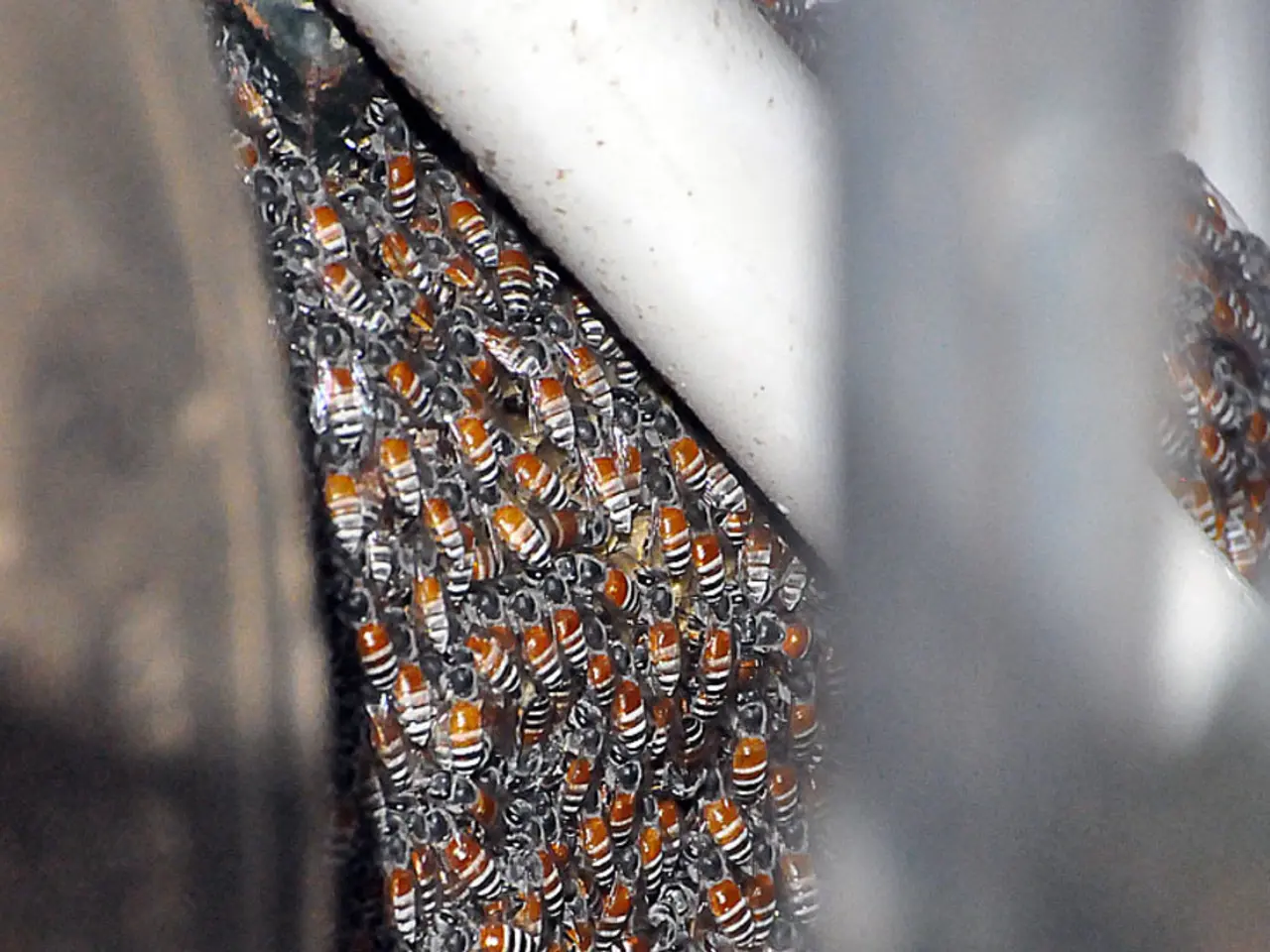Demonstrators with ties to AIMA staging a public demonstration
Immigrant Association Speaks Out Against Portugal's Immigrant Policies
Here's the lowdown on the growing unrest among immigrant communities in Portugal. The country's largest immigrant association, Solidariedade Imigrante, is leading the charge, voicing concerns of immigrants from Bangladesh, Nepal, Pakistan, and India. According to the organization's president, Timóteo Macedo, these individuals are being left out by the Portuguese State.
Macedo doesn't mince words when discussing the upcoming rally on April 7th. He states emphatically, "Nothing falls from the sky. Nothing is given to us if we don't fight for things to change." The demonstration is the first in a series planned by the association to address Portugal's migration policies.
Macedo reveals that the inspiration for these protests comes from meetings with various immigrant communities, including those facing severe persecution from far-right organizations within Portugal. He points to an increase in Islamophobia within the country, which concerns the association immensely.
Solidariedade Imigrante boasts a global reach, with 70,000 members worldwide. Macedo considers this extraordinary, given Portugal's size and its unique place in Europe. He emphasizes that these numbers reflect widespread discontent with the current legal changes in Portugal, which have eliminated expressions of interest as a means for foreigners to legalize their residency, a process once possible even with a tourist visa.
Macedo is fiercely critical of the Integration, Migration and Asylum Agency for its apparent ineffectiveness. He claims that the agency leaves the lives of thousands of immigrants in limbo by not responding or rejecting more than half of the previous expressions of interest. Furthermore, immigrants who've been identified as irregular in other European countries and placed on a "Schengen area non-admission list" are allegedly not receiving responses from Portugal's agency.
These individuals choose to come to Portugal specifically to apply for expressions of interest, and Macedo argues that it falls on the agency to identify and act upon such cases appropriately. However, he asserts that AIMA is doing nothing in this regard, citing lack of resources and skills as primary concerns.
Macedo wants to raise awareness within civil society and the media about the plight of thousands of individuals whose lives are stalled due to the current immigration policies. He stresses that these people are working, paying taxes, and contributing to the Portuguese economy, and yet their futures are uncertain. In Porto alone, there are 800 such cases.
Strategies of Divide and Conquer
The selective opening of priority channels to citizens of Portuguese-speaking countries represents a "divide and conquer" approach towards immigrants and the associative movement. This distinction, argues Macedo, can weaken the bonds between immigrants and hinder collective action against discriminatory policies.
Recently, a deal has been struck between the state and employers known as "Via Verde," which sends workers back to their countries of origin to be hired and later brought to Portugal. Macedo is highly critical of the measure, claiming it turns workers into contractors, effectively enslaving them to their employers.
According to Macedo, employers evade responsibility by deducting all costs associated with their employees, including Portuguese language education and housing expenses promised to the government, leaving the workers in a precarious situation. He foresees these workers being confined to containers, tied to companies without any freedom or autonomy.
Sources and Further Context:
- The immigrant demonstrations coincide with broader housing-related protests throughout multiple Portuguese cities, including Lisbon and Porto. Immigrant communities and advocacy groups are addressing both immigration restrictions and housing crises. (Casa para Viver)
- Portugal has recently tightened citizenship and immigration rules, doubling the required legal residency period and introducing new requirements for citizens of Community of Portuguese Language Countries (CPLP). These changes reflect the influence of the far-right Chega party, which advocates for tougher immigration measures. (Reuters, The New York Times)
- Protesters demand the reversal or modification of the tightened naturalization laws and protection for current legal residents from being penalized by these new requirements. (Portuguese News Agency)
- Portugal's immigrant association, Solidariedade Imigrante, has expressed concern about politics related to migration, specifically the country's tightened citizenship and immigration rules, which they believe have been influenced by the far-right Chega party.
- The general news surrounding Portugal includes discussions about the upcoming rally on April 7th, led by Solidariedade Immigrante, and their plans to address the country's immigration policies that they believe are divisive and potentially unjust, such as the selective opening of priority channels to citizens of Portuguese-speaking countries and measures like "Via Verde" that they believe exploit immigrant workers.







